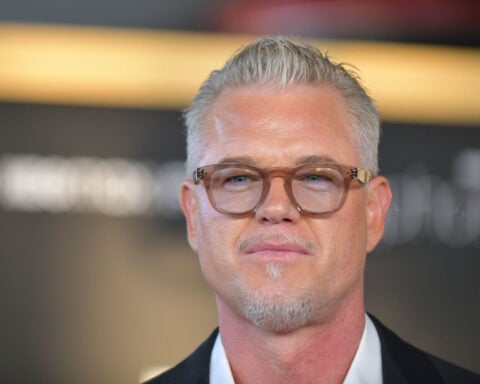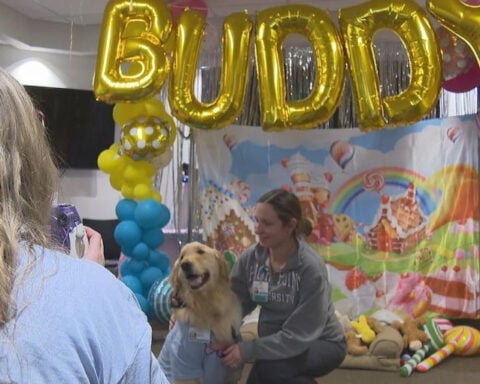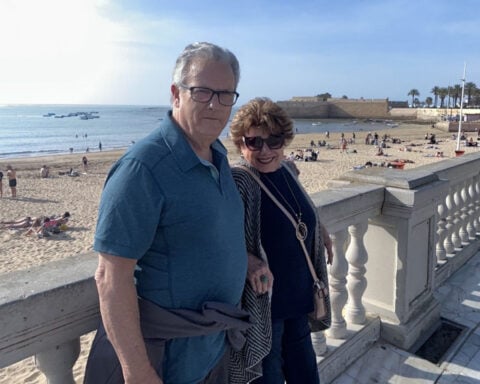A damning 300-page British inquiry report reveals that electrician David Fuller's unfathomable 15-year spree violating over 100 corpses could have been prevented. Fuller ultimately faced conviction for 1987 double homicide cold cases, prompting discovery of his mortuary necrophiliac acts. However, the inquiry condemned systemic "failures of management, governance, regulation and processes" enabling his crimes.
Authorities uncovered Fuller's acts after tying DNA from decades-old murder scenes to the 69-year-old electrician. This launched inquiries into mortuary breaches at two Kent hospitals where Fuller worked. Investigators subsequently unearthed over 10 million disturbing media files within the killer's residence. Among these were timestamped photos and videos documenting Fuller committing sex acts on 101 dead females – some as young as nine.
"The offenses David Fuller committed were truly shocking," the report declared. However, it emphasized faulty systems and negligence facilitating his violations. "The failures...all contributed to the creation of the environment in which he was able to offend," it concluded. Fuller is currently serving life imprisonment for double homicide plus a concurrent 12-year necrophilia sentence.
The electrician brazenly desecrated bodies during work hours from 2005 to 2020. Occasionally performing mortuary cooler maintenance, Fuller entered these secure areas over 400 times certain years sans adequate interrogation. "This is not solely the story of a rogue electrical supervisor. David Fuller’s victims and their relatives were repeatedly let down by those at all levels whose job it was to protect and care for them," the inquiry report admonished.
Fuller's existing criminal record as a burglar went undisclosed on employment forms. Administrators then hired him at Kent's now-shuttered Kent and Sussex Hospital in 1989 - two years post his 1987 Tunbridge Wells double homicide. Those cold cases persisted unsolved over three decades while Fuller held Tunbridge Wells Hospital employment.
The inquiry suggested strict precautions against repeat violations, including surveillance cameras inside mortuaries. It also advised mandating accompaniment of non-mortuary staff by employees when accessing secure areas. "David Fuller’s victims and their relatives were repeatedly let down by those at all levels whose job it was to protect and care for them," the report reiterated.
Families of the deceased shared dismay over learning of Fuller's acts. One widower described forever stained memories of his wife. "It’s basically robbed me of 25 years of happy memories. Anything that reminds me of my wife also reminds me of what David Fuller did to her,” he lamented. The husband remains too anguished to inform relatives regarding her desecration.
Maidstone and Tunbridge Wells NHS Trust's CEO Miles Scott extended apologies for the egregious pain caused. "I am deeply sorry for the pain and anguish,” he offered, further vowing implementation of all 17 inquiry recommendations. These aim to assure no repetition of systematic and individual failures enabling Fuller’s record-setting mortuary violations.
The electrician initially drew notice of authorities in 2020 through DNA evidence tying him to the 1987 beating and strangulation murders of Wendy Knell and Caroline Pierce. Fuller subsequently confessed these killings occurring in Tunbridge Wells – receiving a life imprisonment sentence last December. Investigators later found extensive visual evidence of his mortuary assaults dated from 2008 at the offender’s residence.
Police uncovered over four million inappropriate images stored across Fuller’s home. However, further interrogation of recovered electronics revealed millions more photos and videos documenting the electrician engaging in sex acts with deceased hospital patients of all ages. Timestamps chronologically recorded 101 victims during Fuller’s decade and a half violating body storage areas at Tunbridge Wells and Kent & Sussex hospitals.
A 2022 sentencing hearing was told no precedent existed in British courts for Fuller’s level of necrophilia. Prosecutors emphasized the electrician demonstrating no hesitation or remorse while callously dehumanizing victims. Justice Cheema-Grubb handed down an additional 12 years behind bars for Fuller’s mortuary assaults.
“Your depravity breached the last taboo in criminal offending,” she admonished. Cheema-Grubb further blasted systemic negligence enabling repetitive facility access, labeling Fuller’s acts “dark and disgusting secrets on an unprecedented scale.” Relatives of desecrated loved ones concurred – questioning how such horrors could unfold without raising alarms.
The independent inquiry report echoed these concerns over perpetual institutional failure. It described management deficiencies, absent governance and lack of investigative curiosity facilitating Fuller’s undetected crimes at every level. Nondisclosure of the electrician’s prior burglary history allowed 1989 hospital employment. From this vantage, his hundreds of mortuary cooler entries escape formal scrutiny over years.
Inquiry leader Jonathan Michael acknowledged no singular bad actor beyond Fuller himself. However, Michael emphasized that collective system breakdowns precipitated the offender “being able to offend.” Repeated disregard for unexplained mortuary appearances failed both patient dignity and public trust. Michael further highlighted the need for enhanced security, auditing and accountability to prevent any possible recurrence.
Fuller’s decade and a half evading detection seemingly stemmed from brazen mortuary access despite site restrictions to authorized staff only during work hours. Report analysts remained unable to determine how Fuller carried out assaults with such impunity. But they did reference the electrician’s critical role maintaining refrigeration units as central to avoiding questions over continual cooler visits.
"This is not solely the story of a rogue electrical supervisor. David Fuller’s victims and their relatives were repeatedly let down by those at all levels whose job it was to protect and care for them," the scathing review reiterated. It argued that sufficient existing governance, oversight and inquiry could have promptly halted Fuller much earlier. Patients and families deserved far better than such systematic failing to protect their loved ones’ remains.
Scott as Trust CEO committed to urgently enacting all 17 inquiry recommendations aimed at preventing any possible recurrence. These include strict access rules, security upgrades like CCTV and swipe-card monitoring, and reforms enhancing accountability. “I am deeply sorry for the pain and anguish experienced by families,” Scott acknowledged.
Fuller’s acts left countless victims’ relatives haunted by permanent scars, as one husband described. “It’s robbed me of 25 years of happy memories. Anything that reminds me of my wife also reminds me of what David Fuller did to her,” he explained. Outrage persists that administrators ignored every warning sign for over a decade, enabling violations against over 100 already grieving families.

 Trump has begun another trade war. Here's a timeline of how we got here
Trump has begun another trade war. Here's a timeline of how we got here
 Canada's leader laments lost friendship with US in town that sheltered stranded Americans after 9/11
Canada's leader laments lost friendship with US in town that sheltered stranded Americans after 9/11
 Chinese EV giant BYD's fourth-quarter profit leaps 73%
Chinese EV giant BYD's fourth-quarter profit leaps 73%
 You're an American in another land? Prepare to talk about the why and how of Trump 2.0
You're an American in another land? Prepare to talk about the why and how of Trump 2.0
 Chalk talk: Star power, top teams and No. 5 seeds headline the women's March Madness Sweet 16
Chalk talk: Star power, top teams and No. 5 seeds headline the women's March Madness Sweet 16
 Purdue returns to Sweet 16 with 76-62 win over McNeese in March Madness
Purdue returns to Sweet 16 with 76-62 win over McNeese in March Madness








